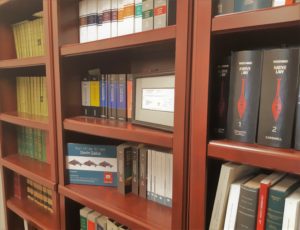
Preparing to be Examined for Discovery as a Self-Represented Litigant
By Lorenzo Rose
If you ask a group of people what their favorite way to spend their free time is, odds are not a single person will say “fighting a lawsuit.” Litigation is almost always stressful for the parties involved. For people who cannot access legal advice, added to this stress is the fear of the unknown.
This article is designed to provide basic information about examinations for discovery in civil actions in the B.C. Supreme Court for the benefit of self-represented litigants. It is general information only and is not legal advice. It also is not applicable to criminal or family matters or actions in other courts, such as the B.C. Provincial Court.
What is an examination for discovery
An examination for discovery is one of the steps in the litigation process that allows one party to gather information about another party’s case.
To set up an examination for discovery, one of the opposing parties will serve a form called an “Appointment to Examine for Discovery” on you. That form will set out the place, date and time of the examination, and the potential consequences if you fail to attend the examination. These potential consequences include having your defense to the action dismissed and being found in contempt of court.
An examination for discovery is an opportunity for the lawyer for the opposing party to ask you questions about your case, under oath or affirmation, in the presence of a court reporter. Every question you are asked and every answer you provide will be recorded, and a transcript of your testimony will be prepared. The examination does not take place in a courtroom and there will not be a judge present. However, the answers that you provide can be used as evidence against you later in the action.
Process for an examination for discovery
An examination for discovery is usually held at a court reporter’s office. The opposing party is entitled to examine you for seven hours, not including breaks, so be prepared for the examination to last the entire day.
When the examination begins, you will have the option to either swear an oath or make an affirmation to tell the truth. If you choose to swear, the court reporter will ask you to make an oath on the Bible to tell the truth. Affirmations, in contrast, do not have any religious connotations. This choice is a personal preference and will have no consequences for the examination or the case in general.
During the examination, counsel for the opposing party will ask you questions. The questions and your answers will be recorded verbatim and reproduced in a written transcript.
Answering questions
The following tips are suggestions for how to conduct yourself during an examination for discovery. These suggestions are general only and are not legal advice.
- Keep your cool. Do your best to stay calm and composed, try not to be defensive, and resist the urge to get into an argument with opposing counsel.
- Be honest. If you always tell the truth, you will not have to worry about being caught in a lie.
- Listen carefully and take your time before answering. If you do not understand the question, say so.
- If you are unsure of the answer to a question, say that you do not know or do not remember. Opposing counsel may ask you to provide contact information for another person who can answer the question, or to look up the question and provide an answer in writing at a later date. This is much preferable to guessing.
- Keep your answers short and do not volunteer information. Remember, there is no judge in the room, so there is no one for you to persuade. You will have another chance to tell your side of the story. “Yes” and “no” are complete sentences.
- If you realize you gave an incorrect answer, clarify or correct it. Simply say you need to clarify or correct something.
- Speak clearly. Say “yes” or “no,” rather than nodding, shaking your head, or saying “uh-huh”. Use simple language and stick to the facts.
- Avoid interrupting opposing counsel while they are asking you questions.
- Pay attention to yourself. Ask for a break if you need one. Remember that the examination may last all day. Ensure that you are alert and focused for the afternoon session by staying hydrated and eating a good lunch.
Preparing to be examined for discovery
To prepare for an examination for discovery, you should be completely familiar with your case. You can accomplish this by reviewing the pleadings in detail, reviewing any relevant documents you have, and obtaining and reviewing documents listed on the opposing party’s List of Documents.
Although preparation is helpful, there is no substitute for independent legal advice. If you are unable to afford to pay for a lawyer, consider free or low-cost options to obtain legal advice, such as law school legal clinics or Access Pro Bono. If you can afford a lawyer, you can get a referral through Access Pro Bono’s Lawyer Referral Service by calling 1-800-663-1919.
